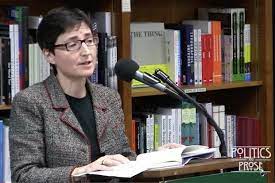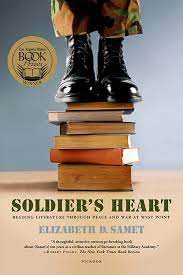During the 4 July holiday, had a chance to speak with @vausecnn of @cnni about Ukraine. A relatively long on-air discussion (below).
One thing we didn't address: battlefield conditions & fear.
A new 🧵. 1/14
cnn.com/videos/world/2…
One thing we didn't address: battlefield conditions & fear.
A new 🧵. 1/14
cnn.com/videos/world/2…
In the last few weeks, many have questioned the speed of Ukraine's offensive.
Most doing so haven't ever been on a high intensity battlefield. Fewer still have fought in those conditions.
While debate usually centers on forces, tactics, equipment, few discuss "conditions." 2/
Most doing so haven't ever been on a high intensity battlefield. Fewer still have fought in those conditions.
While debate usually centers on forces, tactics, equipment, few discuss "conditions." 2/

Today, it was 93 degrees in Kherson. Humidity 36%, making it "feel hotter."
Most soldiers are carrying 50-80 pounds of gear.
Having traveled to many parts of Ukraine with my military counterpart, the terrain is tough: hills, marshes, rivers/streams, few improved roads. 3/
Most soldiers are carrying 50-80 pounds of gear.
Having traveled to many parts of Ukraine with my military counterpart, the terrain is tough: hills, marshes, rivers/streams, few improved roads. 3/

Drawing circles & arrows on a map in an air-conditioned, well-lit room is different than gaining ground in the heat, where there are mines, trenches, obstacles, when you're under fire & when you find yourself "coffee-breath close" in trench fighting. 4/
pbs.org/newshour/world…
pbs.org/newshour/world…
Yes, "the moral is to the physical as 3 is to 1" is a true statement. Thanks, Napoleon.
But the physical is extremely important & it's often ignored.
Soldier exhaustion in offensive operations- over tough terrain, in the heat - is something all good commanders must consider.5/
But the physical is extremely important & it's often ignored.
Soldier exhaustion in offensive operations- over tough terrain, in the heat - is something all good commanders must consider.5/
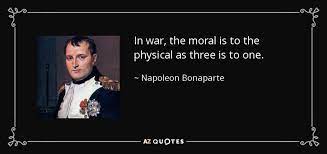
But here's something interesting...
In the 80's the Army sent me for a masters in physiology before teaching in the Department of Physical Education at @WestPoint_USMA.
At @IUSPH I dug deep into the hormonal response to physical exertion & fatigue. 6/
us.humankinetics.com/blogs/excerpt/…
In the 80's the Army sent me for a masters in physiology before teaching in the Department of Physical Education at @WestPoint_USMA.
At @IUSPH I dug deep into the hormonal response to physical exertion & fatigue. 6/
us.humankinetics.com/blogs/excerpt/…
While any type "exercise" is unsurprisingly much lower than elite-level athletics, there is still massive hormonal response.
Soldiers are comparative to "elite level" athletes when conducting battlefield operations...and hormones rage.
Know what else is interesting? 7/
Soldiers are comparative to "elite level" athletes when conducting battlefield operations...and hormones rage.
Know what else is interesting? 7/
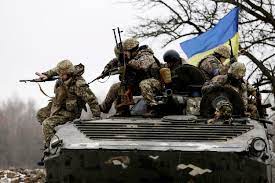
Fear" causes similar and increased hormonal reaction and related brain activity. 8/
medicalnewstoday.com/articles/disse…
medicalnewstoday.com/articles/disse…
Now, lots of military folks quote Clausewitz, Sun Tzu, Jomini, Mahan, SLA Marshall. I've been known to do that.
But a little-known (but favorite of mine) is a guy named Ardant Du Picq.
An obscure French regimental commander, he wrote a great book called "Battle Studies" 9/
But a little-known (but favorite of mine) is a guy named Ardant Du Picq.
An obscure French regimental commander, he wrote a great book called "Battle Studies" 9/

Interestingly, the influence for DuPicq's writing was he & his unit were once caught in a minefield in Sevastopol (Crimea) during the Franco-Prussian War.
Watching his soldiers experience FEAR caused him to reflect more on all he had ever learned about tactics. 10/
Watching his soldiers experience FEAR caused him to reflect more on all he had ever learned about tactics. 10/
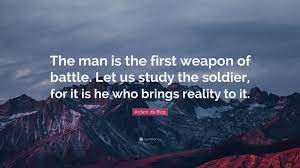
He suggested that fear compounds physical & emotional stress. It compounds the effects of fatigue, especially since soldiers are "rest deprived" anyway.
Fear affects offensive operational tempo. (Studies at our National Traning Center states it affects decision-making, too).11/
Fear affects offensive operational tempo. (Studies at our National Traning Center states it affects decision-making, too).11/
This isn't just theory & research.
I've personally been physically & emotionally exhausted in combat. And I didn't face anything near what Ukrainian commanders & soldiers are facing.
I've also experienced fear in battle. amany times. All soldier -if they're honest- have. 12/
I've personally been physically & emotionally exhausted in combat. And I didn't face anything near what Ukrainian commanders & soldiers are facing.
I've also experienced fear in battle. amany times. All soldier -if they're honest- have. 12/
These factors affecting operations, kinetic engagements, plans, decision-making, individual actions are many & varied on the modern battlefield.
Battle is, in my view, the most intense human endeavor imaginable. It is also the most unnatural and contrary to human nature. 13/
Battle is, in my view, the most intense human endeavor imaginable. It is also the most unnatural and contrary to human nature. 13/
That's why I wrote this tweet 🧵today:
1. To describe how soldiers physiologically react to battle
2. To remind how tough this offensive operation is for Ukraine.
3. To suggest to analysts who haven't been there to refrain from the "Ukraine needs to step it up" narrative. 14/14
1. To describe how soldiers physiologically react to battle
2. To remind how tough this offensive operation is for Ukraine.
3. To suggest to analysts who haven't been there to refrain from the "Ukraine needs to step it up" narrative. 14/14
• • •
Missing some Tweet in this thread? You can try to
force a refresh

 Read on Twitter
Read on Twitter



